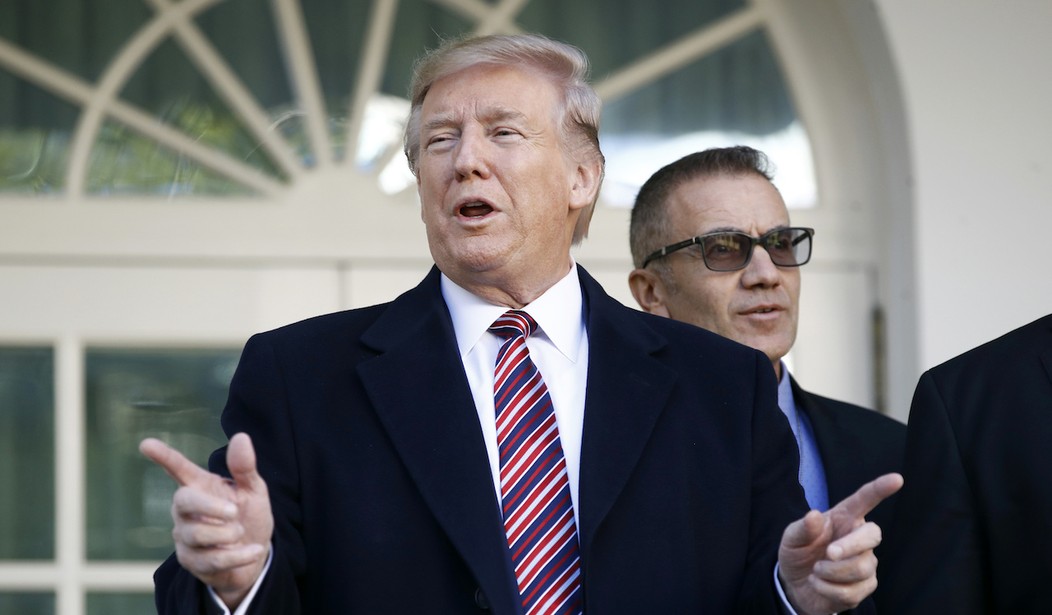Three years ago, Donald Trump began a rhetorical offensive targeting the governments of NATO nations that chronically failed to meet their allied defense financial commitments. With bombastic huff, Trump intimated that allies pay their share or America might walk.
It's 2019. Few NATO members currently meet the 2% GDP defense commitment. However, several once-laggard NATO nations have increased military spending, and the alliance is stronger for it. The era of blithe freeloading has ended. Cheapskates like Germany pay a price in lost prestige. America not only hasn't walked; it is modernizing its forces.
Earlier this year, President Trump began grousing about endless wars and publicly mulled removing U.S. military forces from Syria. Then, in mid-October, he abruptly ordered military advisers to leave northern Syria, a predicate to a complete U.S. skedaddle. Trump's critics cratered. Syria's civil war is a dirty, fractious bloodbath where regional and global powers collide amid homicidal tribes. With the U.S. gone, Turkish forces would slaughter Kurds.
Ah, but in late October, American commandos killed the truly evil Islamic State group leader Abu Bakr al-Baghdadi, who was hiding in a Syrian village not far from the Turkish border. The Pentagon had spent months planning the raid. Alas, The New York Times reported Trump's withdrawal decision "disrupted the meticulous planning and forced Pentagon officials to press ahead with a risky, night raid ..."
Don't buy that. The raid was intricate and its execution meticulous. Special operations helicopter crews train to operate at night. Nighttime is commando time. Turkey knew U.S. helicopters were flying along the border and didn't mention it.
Now in December 2019, U.S. military forces remain in southern Syria. Fighting continues in the north between Turkish forces and various Syrian factions. But in retrospect, Trump's withdrawal antics look more than a bit like strategic political camouflage and psychological preparation that gave the raid that killed an operational boost.
Recommended
Trump's withdrawal bombast sent a psychological message to Islamic State terrorists: The coward Americans are going home. We don't need to worry about Delta Force.
I have sketched two cases where President Trump likely employed diplomatic and psychological feints to advance American security interests. Though Trump's critics won't admit it publicly, the NATO example is documented. The al-Baghdadi example is speculative.
But why would a Pentagon leaker tell The New York Times Trump had "disrupted" the raid? I often served as a plans officer during tours of active duty with the U.S. Army, and I have an answer to that question: so the Pentagon could use the ruse to mask a future operation.
If The New York Times is willing to consciously or unwittingly provide media cover for future American commando raids that remove from planet Earth mass-murdering rapist terrorists like al-Baghdadi, good deal.
Though every operation is different, Trump appears to be using a modified "goodbye NATO" shtick on the U.N. The U.N. is a morass of a mess. However, U.S. dollars talk, and so do U.S. Air Force transport aircraft that support U.N. peacekeeping, emergency relief and developmental aid operations.
Trump is using diplomatic and psychological feints to gain operational leverage in the U.S.-China trade war. Critics bewail his compliments of Chinese President Xi Jinping. Xi is a communist murderer running a prison state. But consider the big game. Personal compliments can serve as psychological political buffers. A personal door to dialogue with Beijing remains available as Washington tightens the economic screws.
Which led me to mulling the psychological targets of Trump's threat to treat Mexican drug cartels as terrorist organizations.
Actually, designating Mexican cartels as terrorist organizations could have severe political consequences for U.S.-Mexico bilateral relations.
The threat bluntly tells the Mexican government to improve its own security efforts in northern Mexico.
However, the threat clearly targets the sick psyches of the drug lords running the cartels. Ambush Americans on Mexican highways and they pay. Jail? No. A visit from Delta Force and its dogs, or a 2,000-pound Air Force joint direct attack munition.
Trump is suggesting narco-comandantes reconsider their criminal behavior.
Austin Bay's latest book, "Cocktails from Hell: Five Wars Shaping the 21st Century" (Bombardier Books), is available now.

























Join the conversation as a VIP Member